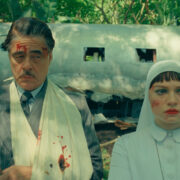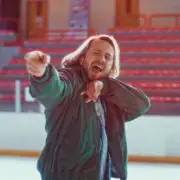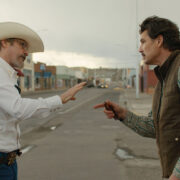Interview With KEDI Director Ceyda Torun: “We All Need To See Things That Remind Us Of The Good Things In The World”
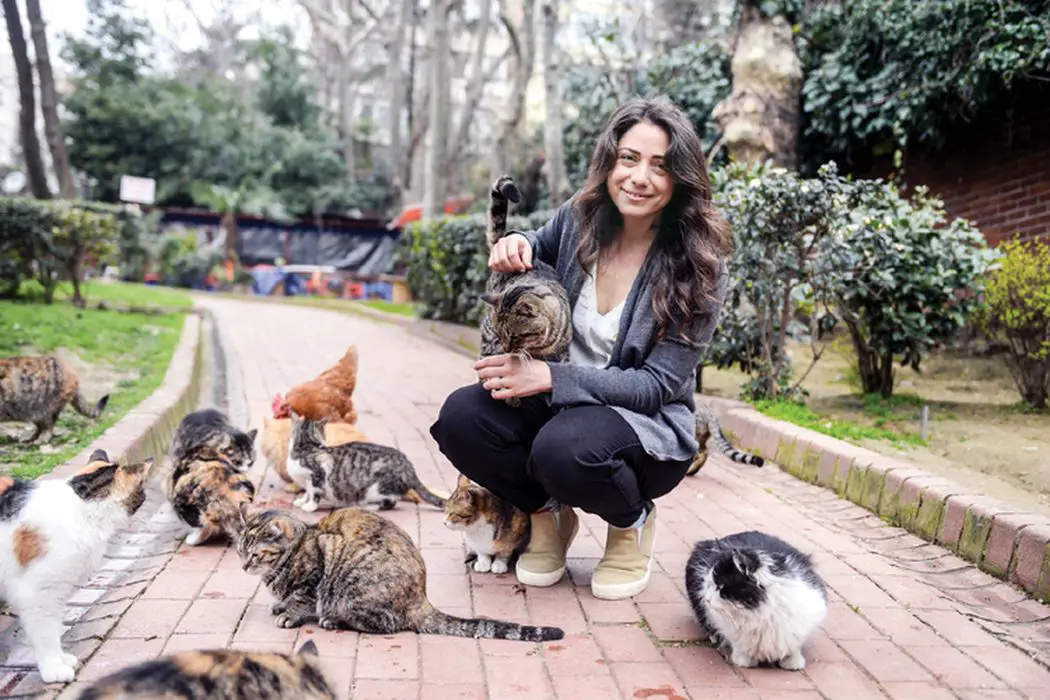
Arlin is an all-around film person in Oakland, CA. He…
Kedi is a film destined to be referred to as “the cat documentary”. To date, no one has taken on the subject with such artistry and humanity as did Ceyda Torun, who hits the ground running with her documentary debut (see my full review here). She was gracious enough to take the time to talk with me about her film, cats, and how she sees them fitting into our new paradigm.
Arlin Golden for Film Inquiry: Thank you for making Kedi, it was a delight.
Ceyda Torun: (laughs) Thank you, thank you.
I know this was your first documentary, what was the impetus? Was it a desire to make a story about Istanbul’s cats? Or did you want to make a documentary and you came around to the subject?
Ceyda Torun: You know, funny enough it was a combination of both. I wanted to do something about the Istanbul cats, but I didn’t know what it would be. I didn’t know what angle it would be. I didn’t know if it would be in documentary form even, or at least feature length documentary form. But then when we, my husband, who’s the cinematographer and co-producer on the film with me, when we started our own production company and started putting our slate of films together, we wanted to explore making a documentary and it was immediately obvious.
What do we have a passion for? What do we know really well? Where can we get to? What is an exotic, beautiful location with a very cool scene? It was immediately obvious that it would be something about Istanbul cats. But originally we thought maybe we could do a nature documentary in an urban setting. Like a March of the Penguins type thing. But we quickly realized…we went out there a year before we actually did the filming and we did a research shoot to see what it could be like. And we realized quite early on that we wouldn’t be able to pull off a big scale nature documentary. But more importantly then, the relationship between the cats and the people and the insight of that was so infinitely more interesting.
You mentioned the people, and throughout Kedi I think you can construe that a lot of the people are projecting emotions and personalities onto these cats that they may or may not have. To you, personally, what do cats in general mean, and what do they mean to the city of Istanbul?
Ceyda Torun: I’m so happy that you saw that that was part of it. I guess we all do it, but in the film as well people do project their own personal ideologies or opinions or interpretations of character on these cats. Sometimes it seems to ring true and sometimes it’s completely not true. But I think that is sort of the beauty of having community cats on such a big scale in a city like Istanbul where the population is [approaching] 20 million at this point.
It’s very densely populated and we don’t really have these kinds of emotionally honest interactions with other human beings, so all of that comes out in the interaction with the cats. Everything that people are passionate about comes out in their relationship with the cats.
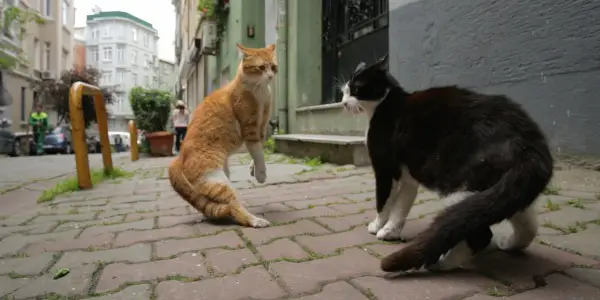
So when one of our interviewees mentions the idea that cats are like mirrors to ourselves, that is so true on so many levels, especially on this level of…if you want to understand someone, you look at how they behave with a cat and how they think about that cat, you’re going to get a really good idea about that person’s disposition as well.
I think that definitely comes through in the film, we learn a lot about the citizens of Istanbul as well as the cats.
Ceyda Torun: I’m really happy to hear that!
So do you have any sort of personal history with cats?
Ceyda Torun: mhmm!
What’s that relationship like for you?
Ceyda Torun: I was born and raised in Istanbul ’til I was about 11 years old. I grew up in an apartment building like most other people; it’s rare to have freestanding homes in Istanbul, even in my youth. Like everyone else I had these cats around me, but I had this encounter with this one cat who became sort of a good friend and a comrade in life and she gave birth to multiple kittens and I helped take care of them. This was like between ages 6 and 11. You know? Crazy childhood I had.
So I do feel a kinship with them and a closeness with them. Or at least specifically with that one cat and her offspring, which gives me the condition that if you connect and have the opportunity to connect with another animal who doesn’t speak the same language as you, you are able to experience this sort of beautiful friendship that I think is very healthy for the imagination and healthy for the soul.
And now, I don’t live in Istanbul, therefore I can’t really have the same indoor/outdoor cat relationship. I try to have it with some strays around my neighborhood, but it’s not quite the same. But I do…I value each encounter that I have with cats, but also with all animals, because I think it’s very similar, to be able have this moments of connection with something other than a human being.
Yeah, I feel that. I have some neighborhood cats that come in and out of my back yard, and it’s always a joy. But I know they’re never there to stay, and it’s sort of a fleeting thing.
Ceyda Torun: Yes, it’s quite nice isn’t it? It’s kind of liberating. They’re not necessarily relying on you for something, but they’re coming around to say hello, and have a moment with you, and leave. There’s something very freeing about that kind of relationship.
Yeah, it’s this…you’re both getting something out of it, but there’s no weird commitment or attachment issues that might be in some human relationships; you kind of both know where you stand.
Ceyda Torun: Yea, I feel like that allows you to have an experience that’s less cerebral, less mental, less worried about “did I say something to offend this person?” or “did I do something that wasn’t right?” or “do they not like me anymore? Do I not like them anymore?” You know? None of that goes through your head when you’re interacting with a cat that comes in and out of your life like that. Which is really very freeing.
Agreed! So now that you don’t live in Istanbul anymore, I’m wondering what you think that impact of these relationships, that are kind of freeing and fun and fleeting throughout the day, how that helps form the character of that city? And I’m not sure where you’re living now, but then what you feel is lacking by not having those sorts of daily interactions?
CT: I live in Los Angeles now, and there is definitely a greater connection to nature in southern California than a lot of the other placed that I’ve lived in, because you have such a presence of nature around you. So you can connect to it. It’s not quite the same thing as cats, but the presence is there.
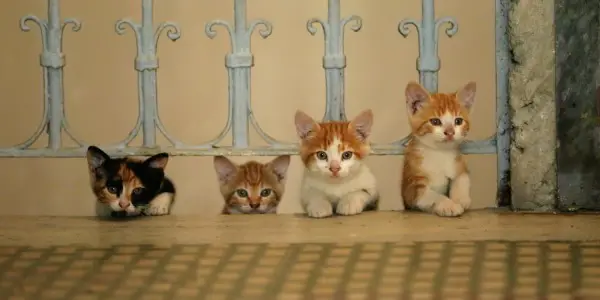
I think Istanbul is a really good example…part of the reason it made sense for it to take place in Istanbul, because there are communities of cats in other parts of the world. Some would see as more haphazard or chaotic and others would see it as more freeing or open. But it’s really a rare case of a major city with a lot of people, a lot of development and there’s still this piece of nature that resists yet stays involved in that world.
I think it’s interesting how we’ve gone from being really engrossed in nature in an every day sort of way as a species, to how we live now, quite far removed in many ways. Even the fact that when we live in a high-rise apartment building, there’s a lot of concrete between the Earth, between ourselves and the soil.
No doubt.
Ceyda Torun: We even wear shoes everywhere. We don’t put our bare feet on the bare Earth too often. It’s almost as if the sort of connection that we came from, that we progressively put a big distance between as we became more and more “civilized”. It’s interesting to see, continuing that connection, the impact it has on us, to our well being, to people and communities.
I mean, in Istanbul we see these people who may not agree with each other politically or religiously but they agree completely about one cat or two cats or a community of cats. It’s truly beautiful to see that we can sort of love each other also on a different level and not necessarily try to sort of mentally identify identify distinctions.
That’s beautiful, I love that, thank you. I’m glad you brought up the politics of Istanbul because I’m curious if there’s any sort of official policy regarding the cats? Or if it’s just sort of generally understood, you know, “Here are the cats. They’re here to stay. We’re friends, so let’s all get along”?
Ceyda Torun: Well there are a lot of cat organizations that try to do the trap, neuter, and return, and they do it relatively successfully. But it’s such a huge city, and it has so many people and so many cats because of that that it’s hard to…there have been efforts by the government to sort of round the cats up to do certain things, and any time that happens tens of thousands of people protest on the street and say “cats of Istanbul belong on the streets”, the kind of thing.
It was really a challenge actually to come to the decision not to include anything political, even about the cats in Istanbul. It was important to make a film that was more of an emotional film, an experiential film, rather than an informative film, because I also didn’t include a lot of history and a lot of technical background about how cats have been with us anthropologically for thousands of years and all this stuff. There’s so much excited information, but it just wouldn’t have fit the aesthetic of the film. Also there’s the overall taste I wanted to leave in peoples’ mouths when they saw this film.
But there’s definitely huge groups of people and municipalities and people really make a big effort to keep populations under control. But there’s conflicting opinions about that too. Some people really don’t feel that it is in our right to mess with nature and to mess with the biology of another species, and others feel that if we’re going to feed them and take care of them then we need to manage their population growth. Which are great discussions and arguments to have, I think, and we’ll only get to the answers by having these discussions.
I agree and I want to thank you for taking the tact that you did, because I think the result of the film is an emotional result. It’s like you said with being with a cat; it’s not too cerebral, you don’t overthink it, it’s a feeling you get. Given everything going on in the world right now it’s just super refreshing, to be honest.
Ceyda Torun: That’s wonderful, thank you.
Jumping off that, the climate for documentaries right now…very serious, very heavy, very political, very activist. I’m wondering how you see Kedi existing in this contemporary documentary space where it really stands out as something unique.
Ceyda Torun: You know, that has been our challenge and our blessing with this film. It’s interesting to see that there are…even when we were putting the film together rand trying to present it as for investors and things like that, we were trying to find a comparable project, and there are really very few films out there that do this kind of non-activist, non-political issue kind of documentary.
Like Jiro Dreams of Sushi, Babies, March of the Penguins; these are films with totally different scales of production value and everything, but all have a common difference from the political issue film you’re talking about. Really I can only think of four or five in a sea of thousands of these documentaries, and it has been challenging to get this film out into the world because of that reason.
But I think also because of that reason people are responding so positively, because we all need it. We all need to see things that remind us of the good things in the world and restore our faith in humanity little bit. Funny enough, after we finished making the film…we were shooting during the first year anniversary of the Gezi Park protest that had happened the prior summer; protests that ended up with tear gas and horrible things, all for the sake of a piece of green land, a green park that was in the center of the town.
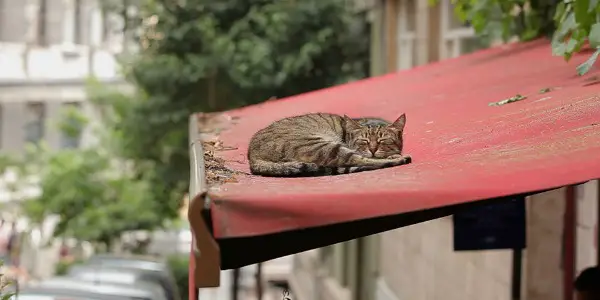
And at the end of the filming process I remember thinking “despite all of the negativity and pessimism, and negative outlooks into the future, I felt a restoration of my faith in humanity because of all these beautiful people I got to spend time with and look into the hearts of. I really think we have to do counter-terrorism in the way of positive terrorism and show people extreme goodness in others because that’s the only way that we can get each other to be tolerant and loving of each other.
I hope that the next time someone who doesn’t live in Turkey hears some news report or some tragedy, that they can think about people they connected to in this film, you know? And have some kind of emotional reaction. That’s the political side of the film.
That’s amazing, I love that: “positive terrorism”. You mentioned that there was some difficulty in pitching the film to investors and others… Having a US theatrical deal for a documentary is a pretty huge thing; there are always so many films on the festival circuit, where I know Kedi had a lot of success, that don’t eventually make it to US theaters, so I’m wondering how that deal came about for you?
Ceyda Torun: It is remarkable that it happened, it’s amazing. It’s the one thing most filmmakers don’t think they’ll ever get, US theatrical distribution. It’s funny I guess, you never know who your audience is going to be until you make the film and start showing it to people. We had amazing receptions at various festivals around the world, but we had a ridiculously wonderful experience at the Seattle International Film Festival. It was just such a big hit, and people came out to see the film in such numbers, and I think that sort of clued distributors to the potential of this film. And it was after that that we were able to get that distribution.
We’re hoping that, because most of the world looks to the US for indication of the success of a film…now we’re slowly moving away from…filmmakers are slowly getting control over the distribution of their own films, luckily, but we’re still in a business where other people’s decisions about the potential success of your film really influences how well it does, or could do. So the release in the US and the wonderful success we’ve had so far in the US festivals has just been the most wonderful blessing for the film. Hopefully it will allow for the film to be seen in the rest of the world as well.
I definitely hope so too. Earlier you mentioned Babies, March of the Penguins, I was wondering, just this being your first documentary again, were there any other strong influences on you in terms of films or documentarians that you kind of looked towards?
Ceyda Torun: You know it’s funny, my background is more narrative stuff and I didn’t really even think that my first film would be a documentary, but I’m super glad that it was. Because it’s a form of filmmaking that influences everything else that you do. But I think for sure my, and my cinematographer Charlie’s backgrounds are in narrative film. Even more sort of like “classically” narrative film, in terms of the look of the project. We made a great effort for it to look as “filmic” as possible, because that’s what we like.
You know, the Akira Kurosawa‘s Dreams type films. Films that are more ethereal and take you on an emotional journey as opposed to more instant gratification…though I have to admit there’s some instant gratification moments in this film. (laughs)
(laughs) Definitely.
Ceyda Torun: I couldn’t lose that! But it was a combination of having this sort of…it’s going to sound silly, but I’ve always been driven to make emotional films. Not necessarily this kind of emotion, but you know what I mean. But manipulative of emotion, but I guess all films want to do that anyway. But it’s such a delicate balance you’re trying to reach with any kind of film, but especially with a film where you aren’t emotionally manipulating people, or at least trying not to emotionally manipulate anyone. Just presenting the balance of this delicate sort of experience.
I think the approach that myself and Charlie are both big fans of that we set out to apply to every project that we do, starting with Kedi, is try to balance the arthouse sensibilities and aesthetic and the balance of emotion with the commercial element that can actually be the bait that can get an audience to sit through an entire 90 or 80 minute film.
And in this case it was…we were very well aware that cats were going to be that attractive point to a lot of people. Because thankfully, you know, the last ten years of internet cat sensation. We probably wouldn’t have been able to get funding for this film it if hadn’t been for that. We were hoping to get people who may not necessarily be interested in this film or who are not necessarily interested in the emotional connections that we create with animals, through their interest in cats, they’re liking cats.
But it’s wonderful to see actually that it’s the same person who is a cat lover who generally tends to be the person interested in these sort of explorations of emotion and thought. So it really came together beautifully in this film. But that is the sort of approach and hopefully moving forward with other projects we’ll be able to keep that going.
So as you were making the film and doing various thing after production, you were very much aware of cat videos and the kind of craze that’s been going on around them.
Ceyda Torun: Absolutely, and we got funding from an investor who’s not necessarily a cat person, but could see the…whether you like it or not you have to have a certain commercial value to something you create in order for it to have a life or be made in the first place. So even if your intention is one way, you have to present it in another way to different people.
For sure, “cats sell”. We talked a little about what you hope people will came away with from the film. I’m wondering if there’s anything you think people, opposed to learning from the film as a whole, can learn from the cats in the film themselves. What do you want people to take away from the cats of Kedi?
Ceyda Torun: Two Things: I hope they come away recognizing the importance of how cats force us to be present; we often put away our devices or stop working for a minute sitting on our computers, you know, attacking our newspapers and whatnot. There’s something really beautiful that cats force us to be present in the “now”, which is harder and harder to do.
With this film I’m hoping that we can at least start thinking in the direction of how we better incorporate nature into our lives no matter what kind of an urban environment we live in. Because it’s not too long ago that we had greater consideration for it and for ourselves. I think it would would be the most beautiful thing if discussions came out of this and thoughts came out of this, seeing the film. Just how much we connect with nature on small doses on a daily basis in our lives.
Right on! Thank you so much for taking the time, and thanks again for making the film.
Ceyda Torun: Thank you for seeing it!
Kedi come out in NYC Friday, February 10th, before expanding to other cities following Fridays. You can get the details for your area at the Kedi website.
Does content like this matter to you?
Become a Member and support film journalism. Unlock access to all of Film Inquiry`s great articles. Join a community of like-minded readers who are passionate about cinema - get access to our private members Network, give back to independent filmmakers, and more.
Arlin is an all-around film person in Oakland, CA. He received his BA in Film Studies in 2010, is a documentary distributor and filmmaker, and runs Drunken Film Fest Oakland. He rarely dreams, but the most frequent ones are the ones where it's finals and he hasn't been to class all semester. He hopes one day that the world recognizes the many values of the siesta system.











